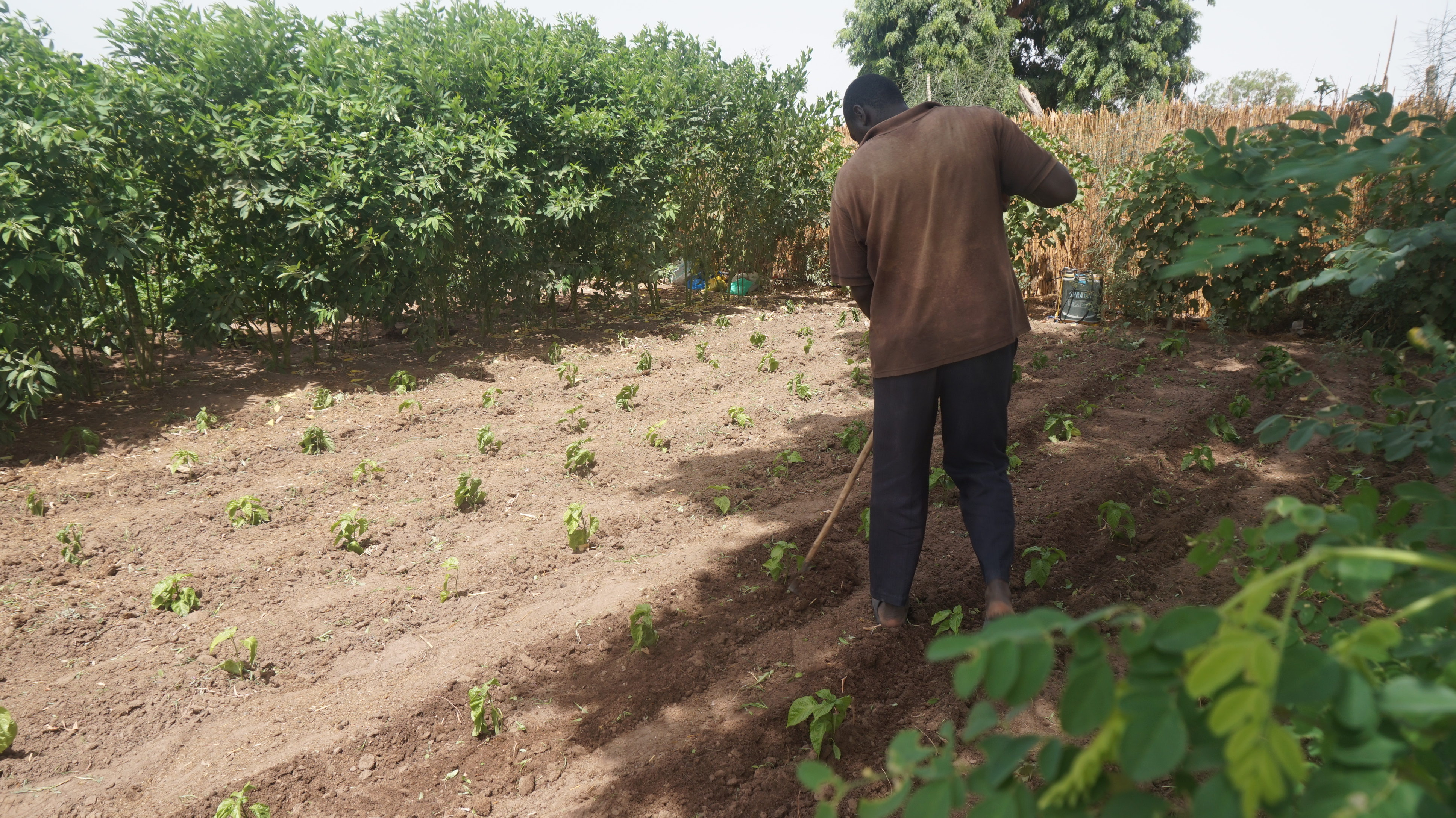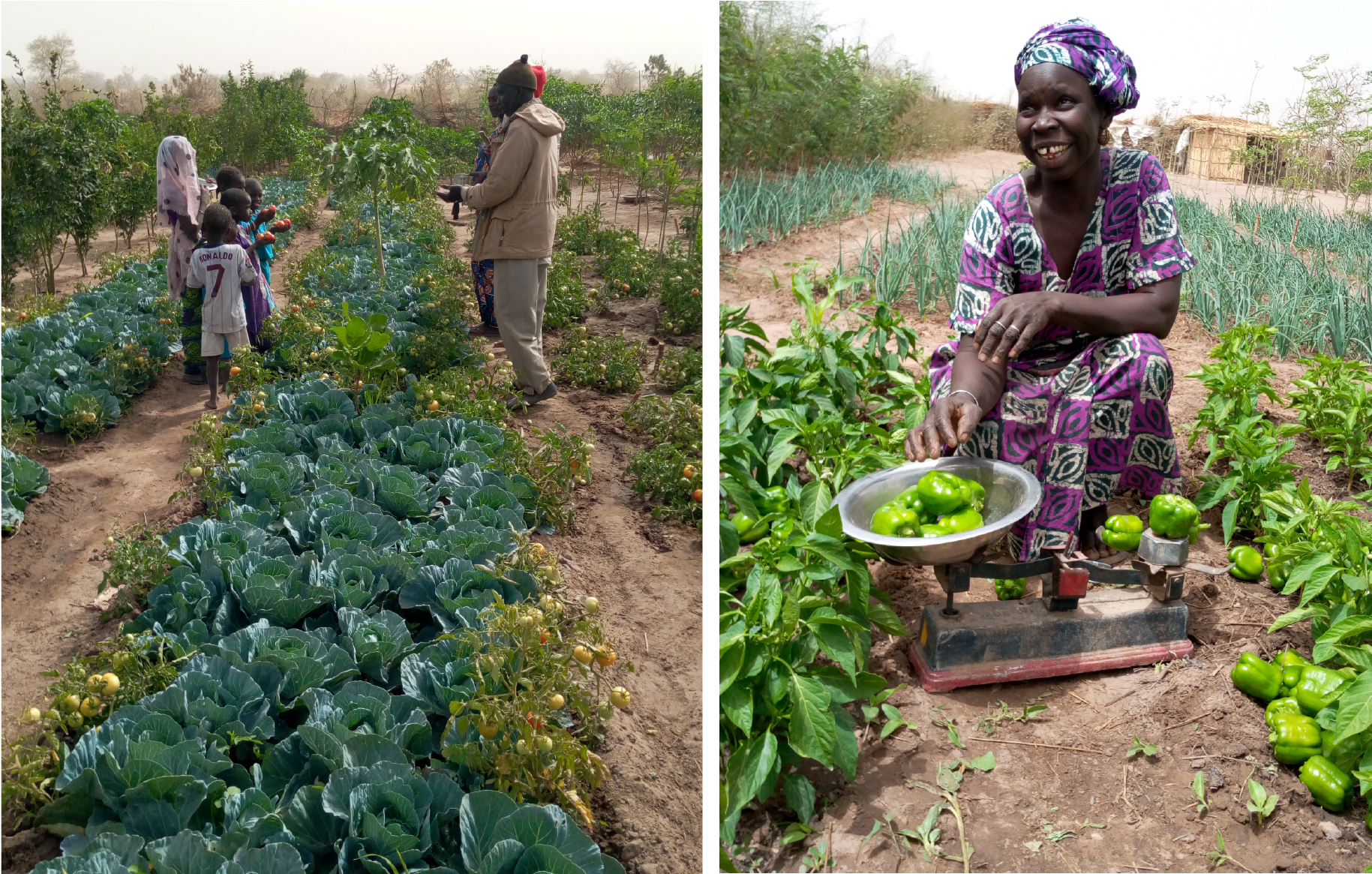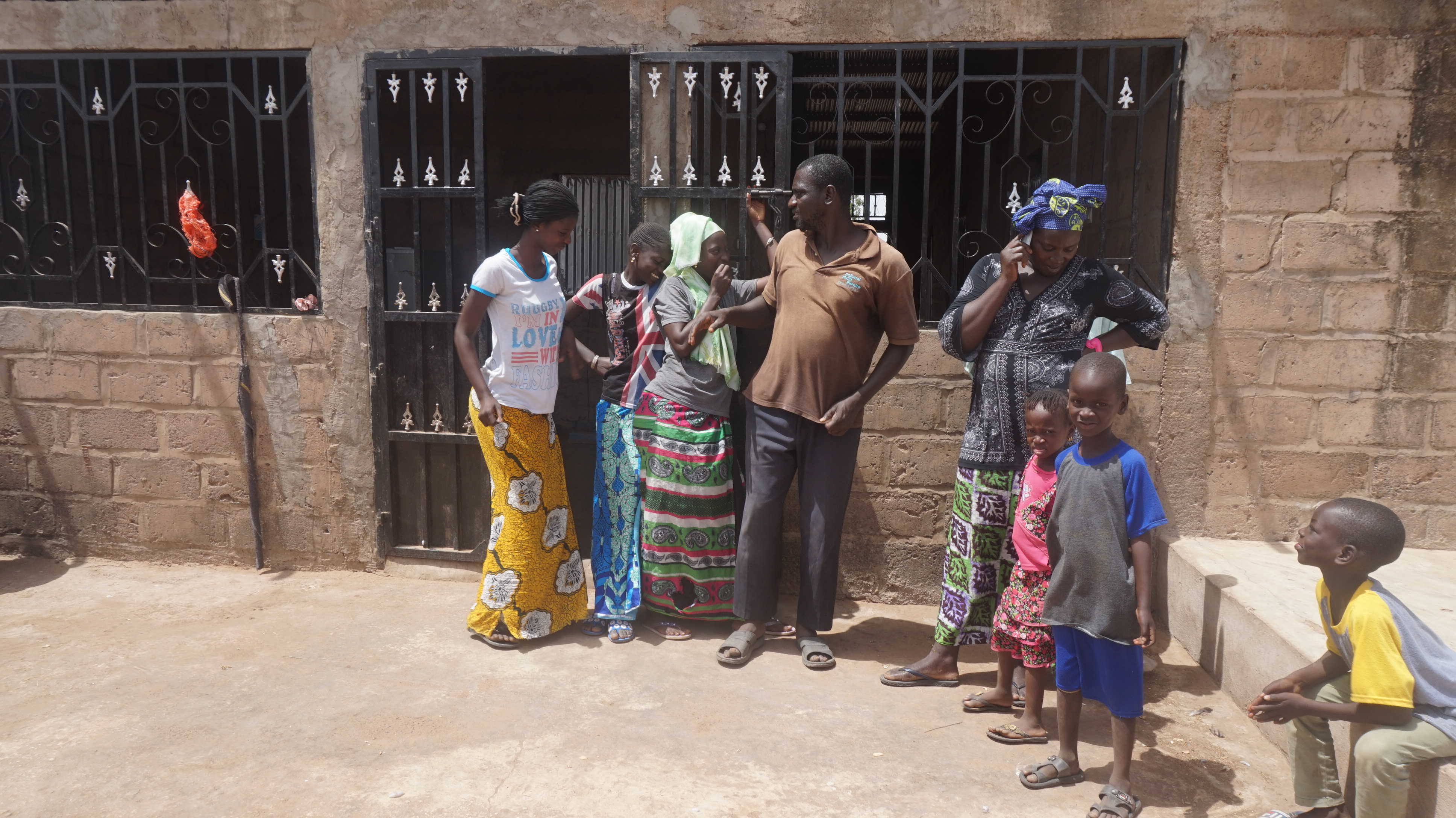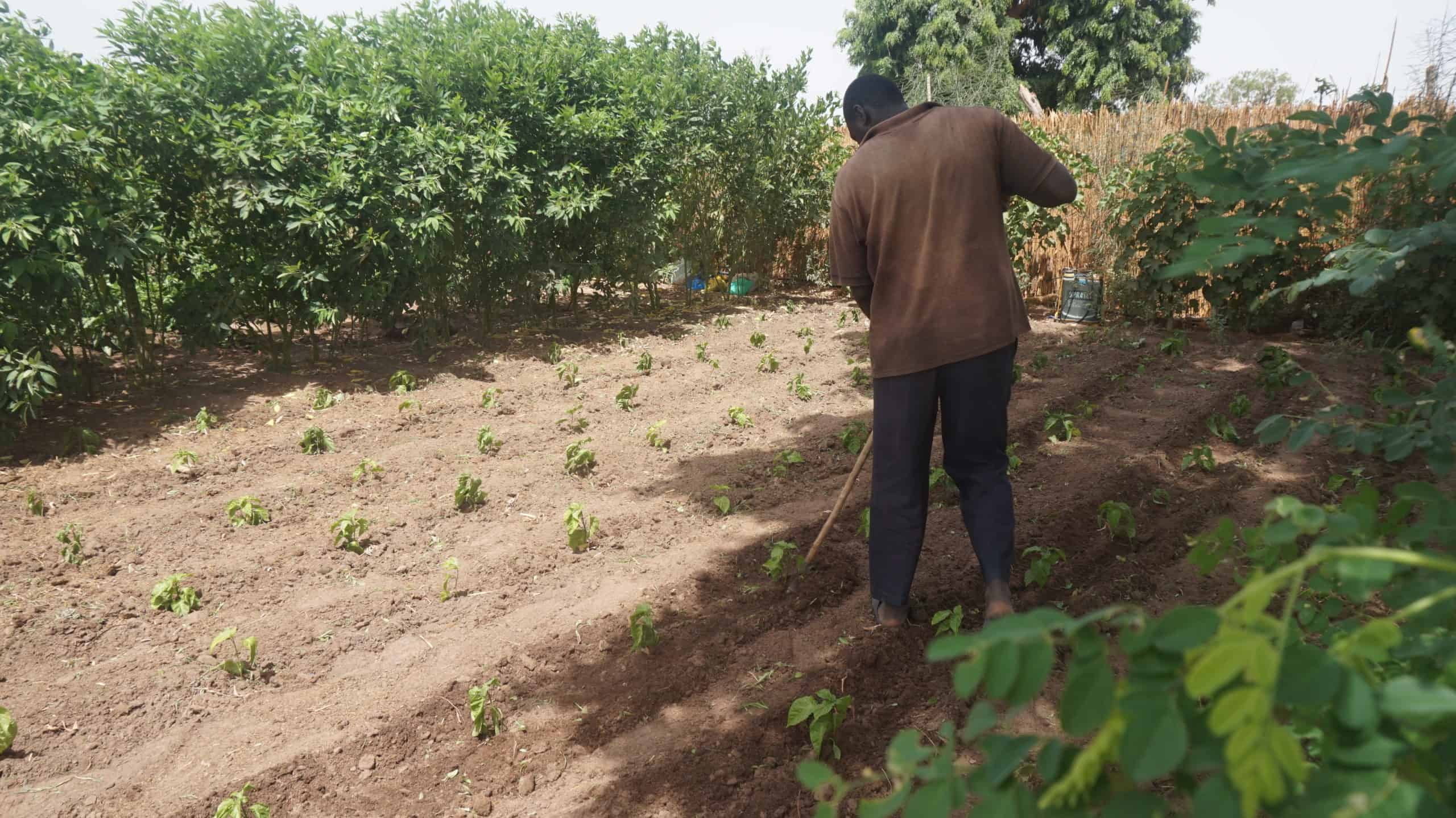A few kilometers from Kaffrine, Senegal sits a very poor and isolated village – Diacksao. In 2018, 300 farmers joined Trees for the Future (TREES) for agroforestry training and resources.
TREES has 11 projects in the greater Kaffrine region. To date, TREES has partnered with more than 2,700 families in Kaffrine, enabling villages to build a steady and reliable economy around agriculture and trees. Amath Cissé is a Lead Farmer in the area assisting about 25 farmers and known by most of the several thousand farmers actively working to plant themselves out of poverty. In the village, Amath is a symbol of the success of TREES’ projects and participating farmers.

A few years ago, Amath had no choice but to stop farming peanut and millet because he could no longer provide enough food or income to support his family. Faced with a devastated, parched field, Amath went on to work on other income generating opportunities. When he first heard about TREES’ Forest Garden Approach, he was a little skeptical about finding success in farming. But after speaking with TREES’ Technicians he joined the program and quickly became one of the most successful farmers in the Kaffrine area. He and farmers like him are changing the agricultural landscape of the region.

Amath first learned how to revitalize his soil by protecting the land and diversifying his crops. He was soon able to produce much more than peanut and millet, he now cultivates a considerable amount of vegetables including aubergine, tomato, okra, moringa, sweet pepper, onion and chili pepper.
This rainbow of nutrient-rich food allows him to feed his whole family. Before, Amath spent about $3.00USD every day to feed his parents and children, but now his Forest Garden provides more than enough to feed all of them while still earning considerable profits at market.
Amath is able to go to market with multiple harvests of beautiful, healthy crops throughout the year. Amath and other TREES farmers are taught to strategically grow produce when the market will work to their advantage. In Senegal, chili peppers are only common a few times throughout the year, but Amath is able to grow them in his Forest Garden when others cannot. Because they’re so rare when he brings them to market, they sell out quickly and he can earn 300,000 FCFA ($528 USD) from a single harvest.
Before TREES began working with farmers in Diacksao, the typical crop was millet and peanuts. But, just like Amath’s crops, that is changing as Forest Garden farmers diversify their crops and harvest more variety with each season. Now, families are able to live on 50,000 FCFA ($87 US) a month, more than was ever possible before adopting the Forest Garden Approach. Today, Amath has reached his first million FCFA (about $2,000 USD) thanks to his trees.

Thanks to this steady income, Amath has built a cement home for his entire family. The structure is ideal for protecting them from the elements, particularly against rain during the winter. He was also able to buy sheep, goats, and a cow. Amath says TREES has changed his life and his family members’ lives. They all not only live more healthy and comfortably, they all enjoy working in the Forest Garden together. Their next exciting challenge is to try to grow watermelon on their own land and help others in the program grow it as well.
Each farmer Amath works with is different, but they all share an understanding of the land and their impact on it. Each farmer now lives with hope and optimism for what the future of agriculture in Senegal will be.
